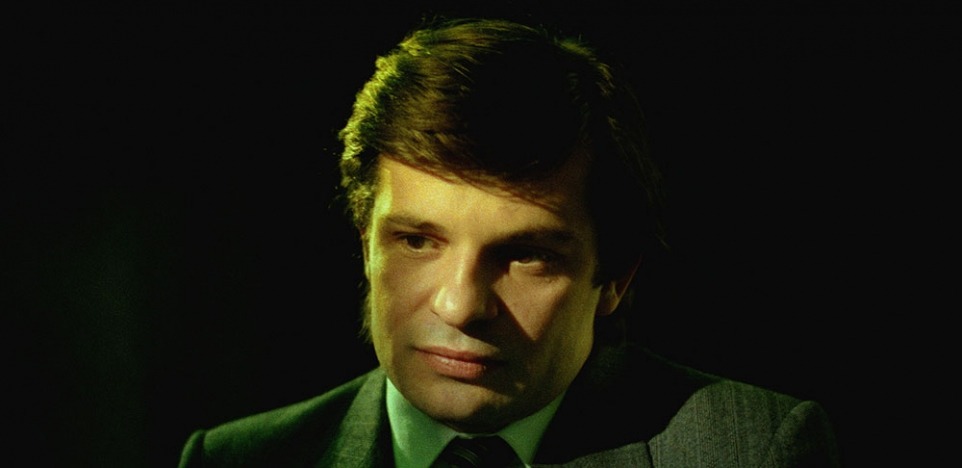Krzysztof Kieslowski's treatment of "Thou shalt not kill" affirms the preciousness of life and stands squarely against murder by individuals or by the state. Jacek (Miroslaw Baka) is a troubled 20-year-old who enjoys breaking the law. Wandering the streets of Warsaw, he pushes a young man into a urinal in a men's room and drops a rock from a highway overpass on a car.
Jacek is not a very nice person, but then neither is the taxi driver (Jan Tesarz) who starts his day cleaning his cab and looking lasciviously at a young woman. After being rebuffed in his attempt to give her a lift, he scares some dogs by honking his horn at them. He refuses to pick up a pregnant woman and avoids a drunk and his buddy. Then Jacek gets into his cab, asking to go to an isolated place. There with great malice he murders the taxi driver.
Piotr (Krzysztof Globisz) has just passed his law exams. He is an idealist who believes that "the law should not imitate nature, the law should improve nature." Piotr is vehemently opposed to capital punishment and is convinced that it does not deter crime. Assigned to the case of Jacek, he can do nothing to help the young man.
While awaiting his execution by hanging, Jacek tells Piotr about the death of his 12-year-old sister and the way it unhinged him. She was run over by a tractor driven by Jacek's friend with whom he had been drinking. Did he kill the taxi driver as a way of begging for punishment because he feels guilty for his sister's death? It seems so, especially when he asks Piotr to give his mother a photograph of the little girl at her first communion and also to be buried near her.
This sober drama reveals that all life must be respected and that no one deserves to be killed. Jacek's act of murder is terrible but so is the barbaric way the state executes him. Kieslowski hammers home this point with ferocity. In the last scene, Piotr after witnessing the execution cries out, "I abhor it."
Perhaps after watching this powerful film in the "Decalogue" series, we would all do well to ponder this truth by Rabbi Yismael: "If you believe the First Commandment that there is a God who is revealed in creation and in the human spirit, then [this Commandment] goes right along with it — don't destroy the Divine Spirit that is in every human being."
